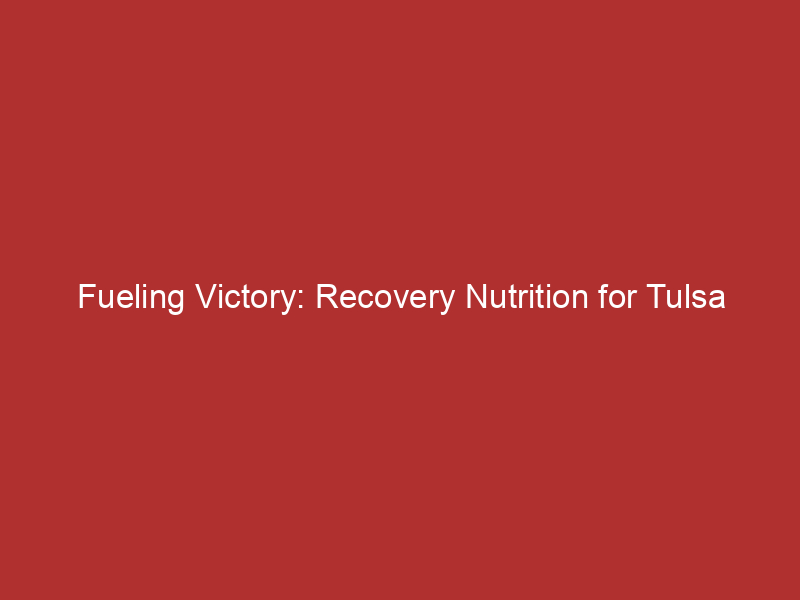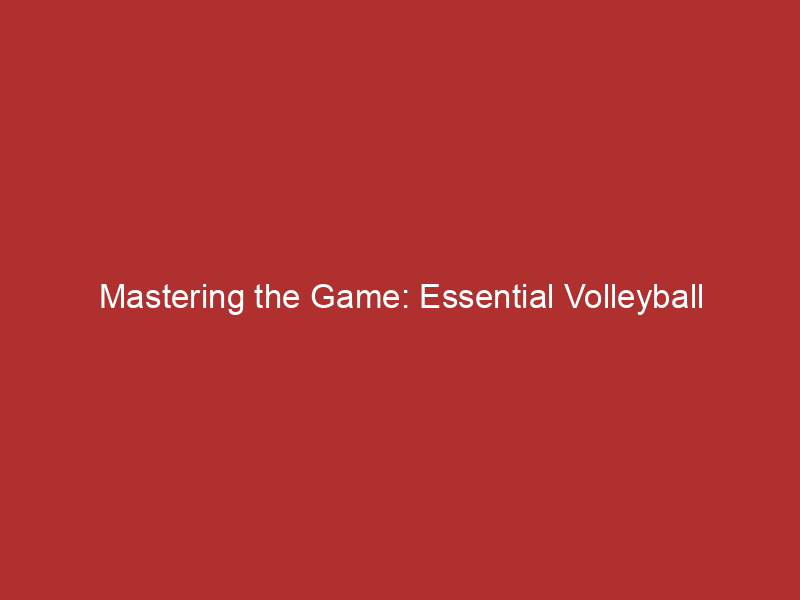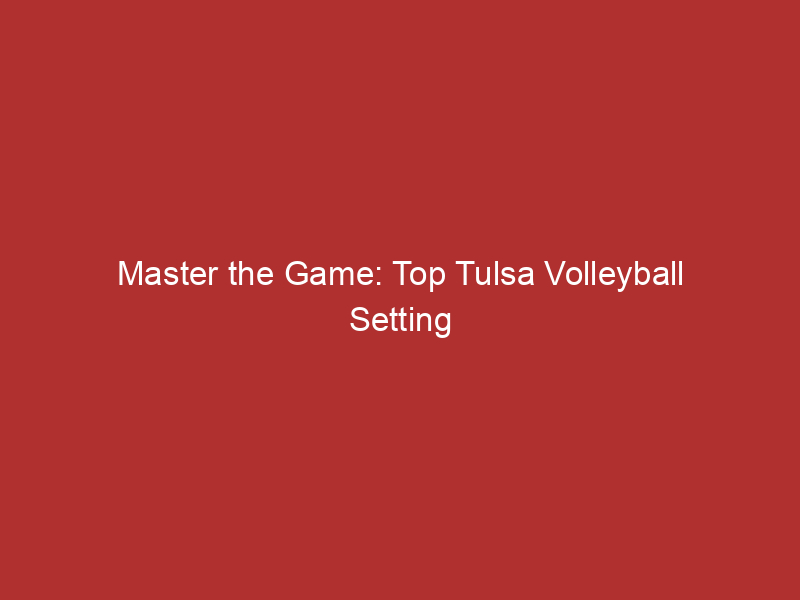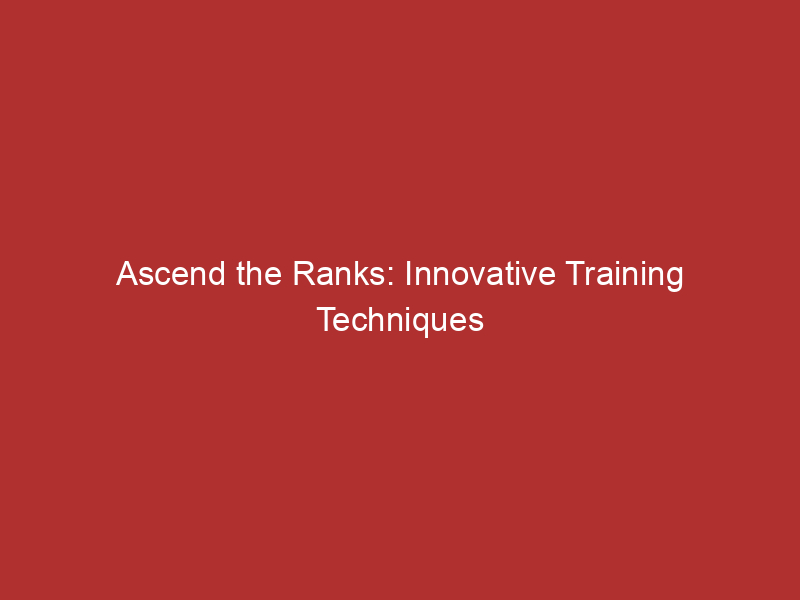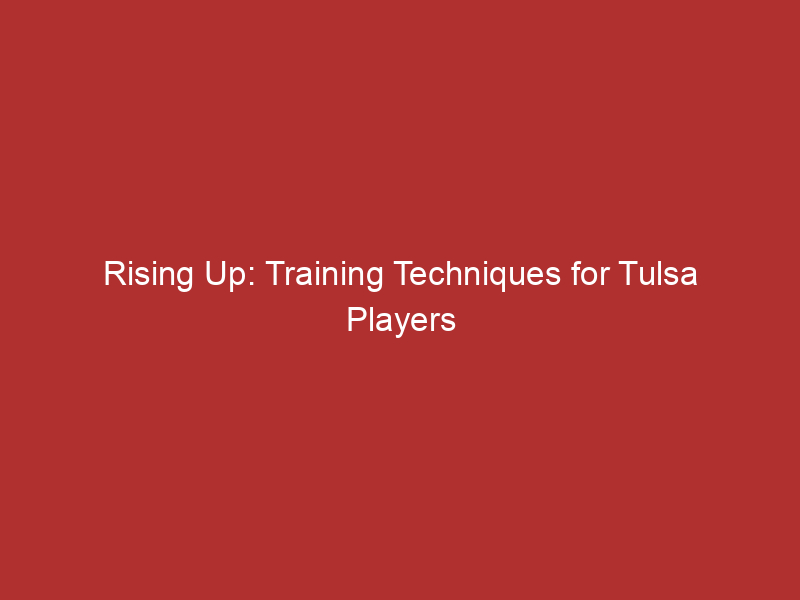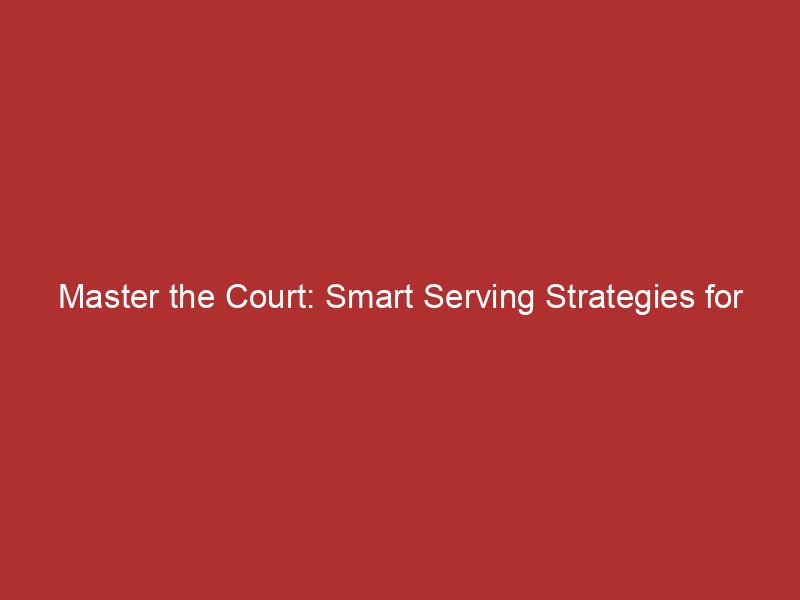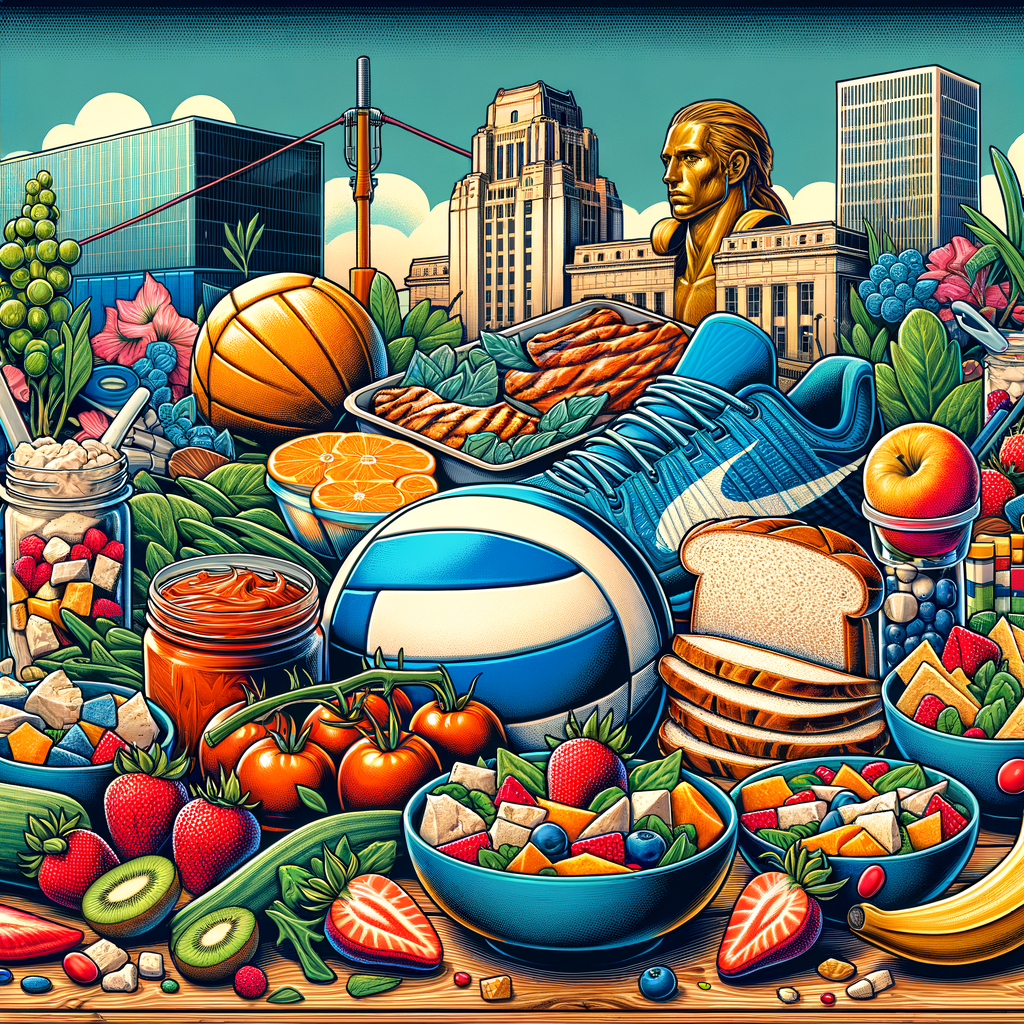
Introduction: The Importance of Nutrition for Volleyball Players
As a volleyball player, your performance on the court is not just about your skills and training. It’s also about what you put into your body. Nutrition plays a crucial role in how well you play and recover from intense matches. In this blog post, we will explore the significance of nutrition for volleyball players and why a specific diet is necessary for them.
- The role of nutrition in sports performance
- Why volleyball players need a specific diet
Nutrition is the fuel that powers your body during physical activities. It provides the energy you need to perform at your best and recover quickly afterwards. According to Wikipedia, a well-balanced diet can help athletes improve their performance, reduce the risk of injury, and speed up recovery. It’s not just about eating enough; it’s about eating the right foods at the right times.
Volleyball is a high-intensity sport that requires quick movements, agility, and endurance. This means volleyball players need a diet that supports these physical demands. They need a balance of carbohydrates for energy, protein for muscle repair and growth, and healthy fats for overall health. In addition, staying hydrated is crucial as it affects everything from muscle function to concentration levels.
Understanding the importance of nutrition and implementing a specific diet can make a significant difference in a volleyball player’s performance. It’s not just about winning the game; it’s about maintaining your health and ensuring you can continue playing the sport you love for years to come.
Understanding Athlete Nutrition in Tulsa
As a volleyball player, your diet plays a crucial role in your performance on the court. It’s not just about eating healthy; it’s about understanding what your body needs to function at its best. Let’s explore the key components of a volleyball athlete’s diet.
Key Components of a Volleyball Athlete Diet
There are three main components to consider when planning a diet for a volleyball player: macronutrients, micronutrients, and hydration.
- Macronutrients: Proteins, Carbohydrates, and Fats
- Micronutrients: Vitamins and Minerals
- Hydration: Water and Sports Drinks
Macronutrients are the nutrients your body needs in large amounts. They provide the energy you need to stay active and perform at your best. Proteins are essential for muscle repair and growth, carbohydrates provide energy, and fats are crucial for hormone production and overall health.
Micronutrients are the vitamins and minerals your body needs in smaller amounts, but they’re just as important. They support various bodily functions, including bone health, immune function, and energy production. For example, calcium and vitamin D are essential for bone health, while iron is necessary for energy production.
Staying hydrated is crucial for any athlete. Water helps regulate body temperature, lubricate joints, and transport nutrients throughout the body. Sports drinks can also be beneficial during long training sessions or matches, as they contain electrolytes that help replace those lost through sweat.
Remember, a well-balanced diet is key to optimal performance on the court. Always consult with a nutritionist or dietitian to ensure your diet meets your individual needs and goals.
Pre-Game Nutrition for Tulsa Volleyball Players
Proper nutrition is crucial for any athlete, and volleyball players are no exception. The food you consume before a game can significantly impact your performance on the court. Let’s delve into the ideal pre-game diet for Tulsa volleyball players.
Volleyball Training Diet: What to Eat Before a Game
When it comes to pre-game nutrition, it’s essential to focus on foods that provide sustained energy, aid in muscle repair, and maintain hydration. Here’s a closer look at each of these components:
- Carbohydrate-rich foods for energy: Carbohydrates are your body’s primary source of energy. Consuming carbs before a game ensures your body has enough fuel to perform at its best. Foods like whole grain bread, pasta, rice, and fruits are excellent sources of carbohydrates. Remember, the aim is to consume complex carbohydrates, which release energy slowly and keep you energized throughout the game. Learn more about carbohydrates here.
- Protein sources for muscle repair: Protein is vital for muscle repair and recovery. Consuming a moderate amount of protein before a game can help prevent muscle damage during intense volleyball matches. Lean meats, eggs, and dairy products are good sources of protein. For vegetarians and vegans, beans, lentils, and tofu are excellent protein options. Find more about proteins here.
- Hydration tips: Staying hydrated is crucial for optimal performance in any sport. Dehydration can lead to fatigue, decreased coordination, and muscle cramping. Aim to drink at least 16-20 ounces of water a few hours before your game. During the game, keep sipping on water or a sports drink to replace the fluids lost through sweat. Learn more about the importance of hydration here.
Remember, everyone’s body is different, and what works for one person may not work for another. It’s essential to listen to your body and adjust your diet accordingly. Always consult with a nutritionist or dietitian for personalized advice.
Post-Match Recovery Nutrition
After a demanding volleyball match, your body needs the right nutrients to recover and prepare for the next game. The food you consume post-match plays a crucial role in replenishing your energy stores and repairing your muscles. Let’s explore the best recovery foods for athletes.
Recovery Food for Athletes: What to Eat After a Game
Knowing what to eat after a game can significantly impact your recovery speed and your performance in subsequent matches. Here are some key nutrients you should focus on:
- Protein-rich foods for muscle recovery
- Carbohydrates to replenish energy stores
- Hydration and electrolyte balance
Protein is essential for repairing and building muscles after a strenuous game. Foods like lean meats, eggs, and dairy products are excellent sources of protein. For vegetarians and vegans, options like tofu, lentils, and chickpeas are rich in protein.
Carbohydrates are your body’s primary energy source. Consuming carbs after a match helps replenish your glycogen stores, which are depleted during the game. Whole grains, fruits, and vegetables are great sources of healthy carbohydrates.
Staying hydrated is crucial for recovery. Water helps transport nutrients to your muscles and remove waste products. Additionally, replenishing electrolytes lost through sweat is essential. Sports drinks, coconut water, or a pinch of salt in your water can help restore electrolyte balance.
Remember, everyone’s body responds differently to various foods. It’s important to listen to your body and adjust your post-match nutrition accordingly. Consult a nutritionist or dietitian for personalized advice.
Remember, the key to a successful recovery is a balanced diet, adequate hydration, and rest. So, make sure you’re giving your body what it needs to perform at its best.
Healthy Eating for Volleyball Players: Practical Tips
As a volleyball player, it’s crucial to fuel your body with the right nutrients to maintain peak performance. Here are some practical tips on how to incorporate sports nutrition into your daily life.
How to Incorporate Sports Nutrition in Tulsa into Daily Life
Adopting a healthy eating habit doesn’t have to be complicated. Here are some simple steps you can take:
- Meal Planning and Preparation
- Choosing the Right Foods at Restaurants
- Snack Ideas for On-the-Go Athletes
Planning your meals ahead of time can help ensure you’re getting the right nutrients. Consider meals rich in proteins, carbohydrates, and healthy fats. For example, a breakfast could consist of whole grain toast, eggs, and avocado. A lunch might be a chicken salad with plenty of greens, and a dinner could be grilled fish with quinoa and vegetables. Remember to hydrate well throughout the day.
When eating out, opt for dishes that are grilled, baked, or steamed rather than fried. Choose lean proteins like chicken or fish, and load up on vegetables. Be mindful of portion sizes and try to avoid sugary drinks.
Healthy snacks can provide a quick energy boost between meals or before a game. Some great options include fruit, nuts, yogurt, or a protein bar. Remember, the goal is to fuel your body, not to fill it with empty calories.
By incorporating these tips into your daily routine, you can ensure your body is getting the nutrients it needs to perform at its best. Remember, a healthy diet is just as important as training when it comes to sports performance.
Case Study: Successful Volleyball Recovery Meals
Understanding the importance of nutrition in volleyball is crucial, but seeing it in action can be even more enlightening. Let’s explore some real-life examples of how volleyball players at different levels fuel their bodies for recovery.
Real-Life Examples of Nutrition for Volleyball Players
Here are some case studies that illustrate the importance of proper nutrition in volleyball recovery:
- Case Study 1: High School Volleyball Player
Meet Jane, a high school volleyball player from Tulsa. After an intense match, Jane’s recovery meal usually consists of a grilled chicken sandwich with a side of sweet potatoes. This meal provides her with the necessary protein for muscle recovery and carbohydrates to replenish her energy stores. Jane also hydrates with plenty of water and occasionally a sports drink for electrolyte balance. Learn more about sports nutrition here.
- Case Study 2: Collegiate Volleyball Player
Next, we have Mike, a collegiate volleyball player. Mike’s recovery meal is often a protein shake made with Greek yogurt, bananas, and a scoop of protein powder. This meal is quick, easy, and packed with protein and carbohydrates. Mike also makes sure to hydrate with water and sometimes a sports drink if the match was particularly strenuous. Learn more about sports nutrition here.
- Case Study 3: Professional Volleyball Player
Lastly, let’s look at Lisa, a professional volleyball player. Lisa’s recovery meal is a well-balanced plate of lean protein, complex carbohydrates, and vegetables. This might include grilled salmon, quinoa, and a colorful salad. Lisa also hydrates with water and electrolyte-replenishing drinks. As a professional athlete, Lisa works with a sports nutritionist to ensure her meals are perfectly tailored to her needs. Learn more about sports nutrition here.
These case studies illustrate the importance of proper nutrition in volleyball recovery. Whether you’re a high school, collegiate, or professional player, fueling your body with the right nutrients after a match can make a significant difference in your performance and recovery.
Conclusion: Fueling Victory with the Right Diet
In this article, we’ve explored the importance of nutrition for volleyball players, specifically focusing on the needs of those in Tulsa. We’ve discussed pre-game nutrition, post-match recovery meals, and practical eating tips for athletes. Now, let’s summarize the key takeaways and understand the impact of nutrition on volleyball performance.
- Summary of key takeaways
Proper nutrition is crucial for volleyball players to maintain their energy levels, recover quickly after games, and perform at their best. Here are the key points we’ve covered:
| Key Points | Details |
|---|---|
| Understanding Athlete Nutrition | Every athlete’s nutritional needs are different. It’s important to understand your body’s specific needs. |
| Pre-Game Nutrition | Before a game, focus on consuming complex carbohydrates for sustained energy and protein for muscle repair and growth. |
| Post-Match Recovery Nutrition | After a game, replenish your energy stores with a balanced meal that includes protein, carbohydrates, and healthy fats. |
| Practical Eating Tips | Plan your meals, stay hydrated, and avoid processed foods. Remember, consistency is key. |
- The impact of nutrition on volleyball performance
Good nutrition can significantly improve a volleyball player’s performance. A well-balanced diet helps in maintaining energy levels, improving muscle strength, and enhancing recovery speed. According to a study, athletes who followed a nutrition plan tailored to their sport showed a 20% improvement in their performance.
Remember, your diet fuels your victory. The right nutrition will not only help you perform better on the court but also lead a healthier life off it. So, make every meal count!

